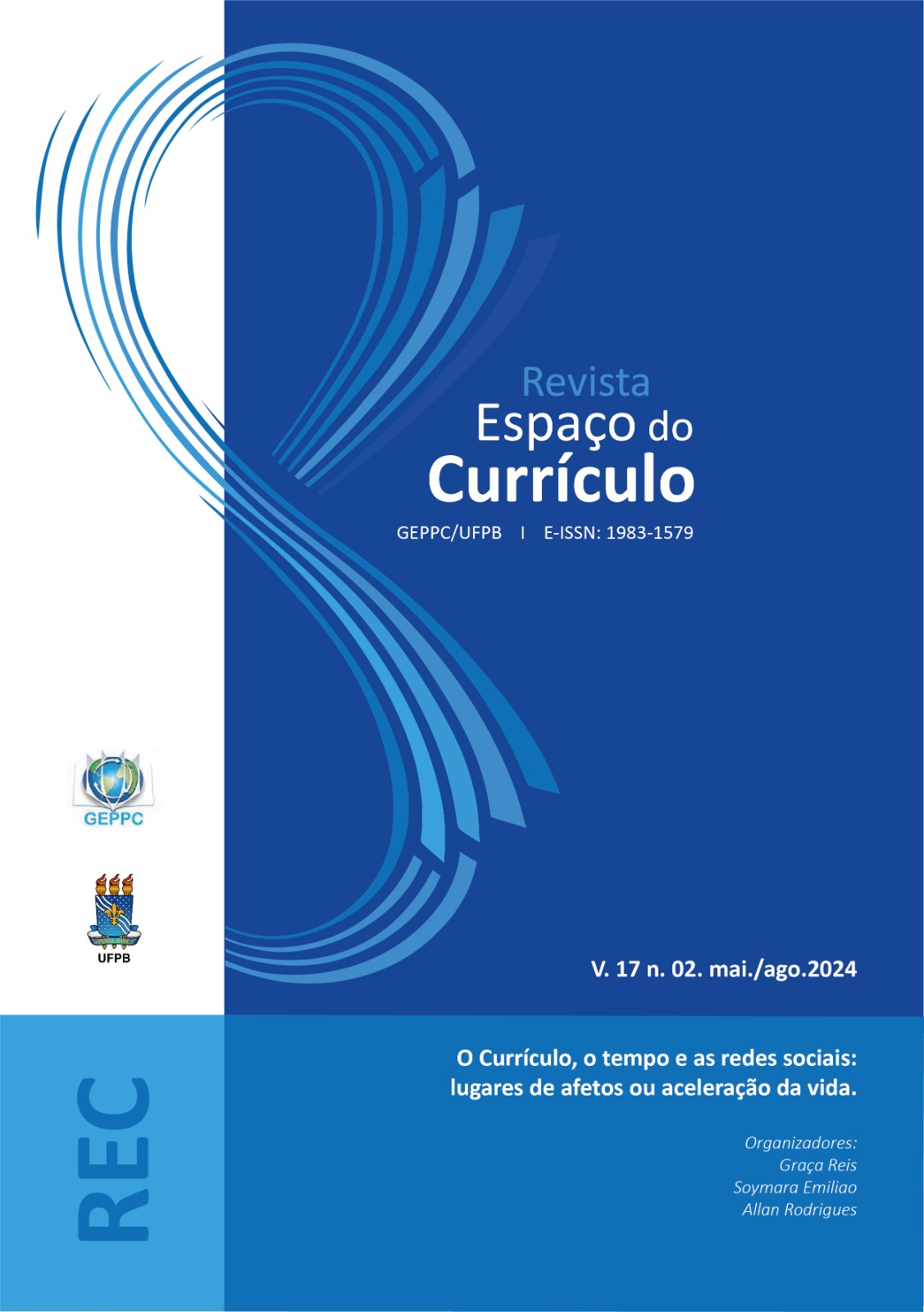AFROINFANCY
between everyday life at school and social media
DOI:
https://doi.org/10.15687/rec.v17i2.70508Keywords:
Afrocentricity, Early Childhood Education, Curriculum, Social media, NarrativesAbstract
The paper presents the Afroinfância [Afrochildhood] project, which is grounded in Molefi Kete Asante’s ideas in line with the Afrocentricity paradigm. The Afroinfância project seeks to rewrite the narrative of African history and to embrace African educational technologies. Through social media, the project challenges traditional curriculum practices and influences teacher training, encouraging teachers to rethink their educational approaches to better meet the needs of black children. Thus, this paper aims to present the narratives of teachers who, as a result of the project, reflect on their educational processes by incorporating curriculum principles structured by the Afrocentric paradigm, particularly in Early Childhood Education. Afroinfância highlights the importance of an education that not only identifies racism but also values African contributions to humanity and, consequently, to how education is conceived and practiced. In sum, Afroinfância positions itself as an important virtual formative space to rethink and promote ruptures within the Early Childhood Education curriculum, with African and Afro-diasporic experiences as the core components of another, non-hegemonic educational model.
Downloads
Metrics
References
ANI, Marimba. Prefácio. In: FU-KIAU, Kimbwandènde Kia Bunseki; LUKONDO-WAMBA, A. M. Kindezi: The Kongo Art of Babysitting. Trad. Mô Maie. Terreiro de Griôs. Baltimore: Black Classic Press, 2000. Disponível em: https://terreirodegrios.wordpress.com/2019/04/14/kindezi-a-arte-kongo-de-cuidar-de-criancas-k-kia-bunseki-fu-ki-au-e-a-m-lukondo-wamba/. Acesso em: 26 jul. 2024.
AFROINF NCIA. Instagram: @afroinfancia. Disponível em: https://www.instagram.com/afroinfancia/. Acesso em: 26 jul. 2024.
ASANTE, Molefi Kete. Afrocentricidade: notas sobre uma posição disciplinar. In: NASCIMENTO, Elisa Larkin (Org.). Afrocentricidade: uma abordagem epistemológica inovadora. São Paulo: Selo Negro, 2009, p. 93-110.
ASANTE, Molefi Kete. The Afrocentric Idea. Philadelphia: Temple University Press, 1988.
BRASIL. Lei 10.639, de 09 de janeiro de 2003. Altera a Lei no 9.394, de 20 de dezembro de 1996, que estabelece as diretrizes e bases da educação nacional, para incluir no currículo oficial da Rede de Ensino a obrigatoriedade da temática “História e Cultura Afro-Brasileira”, e dá outras providências. Diário Oficial da União. 10 de janeiro de 2003. Disponível em: https://www.planalto.gov.br/ccivil_03/Leis/2003/L10.639.htm. Acesso em: 26 jul. 2024.
CAVALLEIRO, Eliane dos Santos. Do silêncio do lar ao silêncio escolar: racismo, preconceito e discriminação na educação infantil. 1998. 56f. Dissertação (Mestrado em Educação) – Faculdade de Educação, Universidade de São Paulo, São Paulo, 1998.
DE GODOY, Eliete Aparecida de. A ausência das questões raciais na formação inicial de professores e a Lei 10.639/03. Revista de Educação, PUC-Campinas, v. 22, n. 1, p. 77–92, 2017. DOI: 10.24220/2318-0870v22n1a3433 DOI: https://doi.org/10.24220/P1519-3993-2017220100006
MADHUBUTI, Haki. MADHUBUTI, Safisha. Educação Afrocentrada: Seu valor, importância e necessidade no desenvolvimento de crianças negras. Journal of Education, Boston University, v.172, n. 2, p. 1-13, 1990. Traduzido por Roberta Maria Federico (2018) – CEFET/RJ.
NOGUEIRA, Renato. Afrocentricidade e Educação: os princípios gerais para um currículo afrocentrado. África e Africanidades, Ano 3, n. 11, p. 01-16, nov. 2010.
NOGUEIRA, Renato. Ubuntu e teko porã: elementos gerais para educação e ética afroperspectivistas. Revista Brasileira de Estudos Africanos, v. 5, n. 9, p. 123-144, 2020. Disponível em: https://www.redalyc.org/articulo.oa?id=512058179006. Acesso em: 05 jun. 2024.
SILVA, Maria Aparecida (Cidinha) da. Formação de educadores/as para o combate ao racismo: mais uma tarefa essencial. In: CAVALLEIRO, Eliane (org.). Racismo e antirracismo na educação: repensando nossa escola. São Paulo: Selo Negro, 2001, p. 65-82.
SOMÉ, Sobonfu. O Espírito da Intimidade: ensinamentos ancestrais africanos sobre relacionamentos. São Paulo: Odysseus, 2003.
WATSON-VANDIVER, Marcia J.; WIGGAN, Greg. The Healing Power of Education: Afrocentric Power as a Tool for Restoration and Liberation. New York, NY: Teachers College Press, 2021.
Downloads
Published
How to Cite
Issue
Section
License
Copyright (c) 2024 Curriculum Space Journal

This work is licensed under a Creative Commons Attribution 4.0 International License.
By submitting an article to Curriculum Space Journal (CSJ) and having it approved, the authors agree to assign, without remuneration, the following rights to Curriculum Space Journal: first publication rights and permission for CSJ to redistribute this article. article and its metadata to the indexing and reference services that its editors deem appropriate.
















